- Seller: Jose E (Contact)
- Location: Toppenish, Washington
- Mileage: Unknown Shown
- Chassis #: C60EVW46542
- Title Status: Clean
- Engine: V8
- Transmission: Automatic
There is something undeniably attractive about buying a classic with a history, and such is the case with this 1978 Ford C-600. It has obviously served faithfully as a Tow Truck, but a close investigation reveals it started life protecting properties and lives as a Fire Truck. It might benefit from a refresh, but it is a solid vehicle with everything working as it should. The time has come for it to find a new home, with the owner listing it exclusively with us at Barn Finds Auctions.
The badge attached to the front of this C-600 tells us much about this classic’s early life. It headed from the Ford Factory to a company called Emergency One Inc., located in Ocala, Florida. Established in 1974, Emergency One became a leading builder of fire-fighting appliances and continues to operate under the E-One banner. That is good news for potential buyers because emergency services vehicles are invariably meticulously maintained to ensure reliability. It is unclear when the truck ended its fire-fighting days, but that would have been when it underwent conversion to a Tow Truck. The original Red paint hides below the existing Black, providing the winning bidder with a few options to consider. Areas like the door frames remain untouched, making reinstating the original shade pretty straightforward. However, it appears that the person applying the Black did so to a high standard. That should make preservation or a light cosmetic refresh viable options. The panels are straight, and the trim and glass are in good order. The equipment required to operate as a Tow Truck, including the hook, lift, and front bumper-mounted winch, are intact and functional. I see no reason why this Ford couldn’t resume its towing duties with little time or effort.
The owner confirms that this C-600 is powered by a V8, and decoding the VIN suggests it should be the 361ci powerplant, producing 196hp and 327 ft/lbs of torque. Shifting duties fall to a five-speed manual transmission, and the combination of a “granny” first gear and the engine’s inherent low-end torque would have made this Truck ideal in both roles it served. A bit of detective work reveals that its towing duties weren’t restricted to hauling cars, because Art’s Body Shop designed it to pull large trucks. It runs and drives, and returning the C-600 to active service shouldn’t be difficult.
This C-600’s interior is serviceable, and performing a thorough cleaning should lift its presentation to a higher level. The painted surfaces retain their original Red, and the most pressing issue is the sagging headliner. The seatcover exhibits mild deterioration, but there are no visible rips or other urgent problems. It retains some of the decals and controls that were fitted during its fire-fighting days, along with a practical pair of handles to assist with vehicle entry, and controls for the winch, hoist, lightbar, and other exterior illuminations. The new owner could utilize the vehicle in its current form, although refreshing the interior if they choose to restore the exterior would be straightforward and inexpensive.
This 1978 Ford C-600 offers its new owner a range of possibilities, and returning it to its role as an effective Tow Truck is just one. It could operate just as easily on a farm or any other location where a heavy-duty vehicle is required. Refreshing the exterior would be straightforward, but preservation may prove irresistible to some. Classic trucks enjoy a strong following, and if you are an individual harboring a desire to own something distinctive with a fascinating history, this C-600 could be the ideal choice.
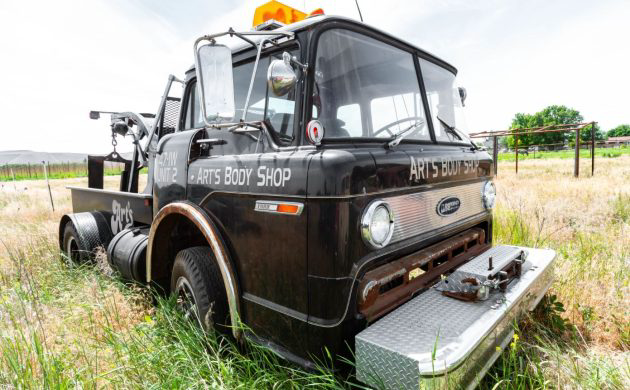
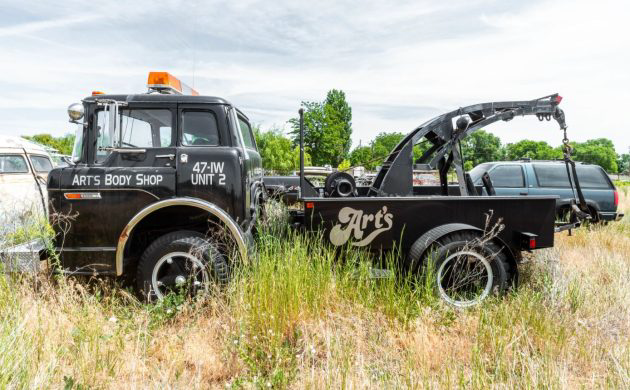
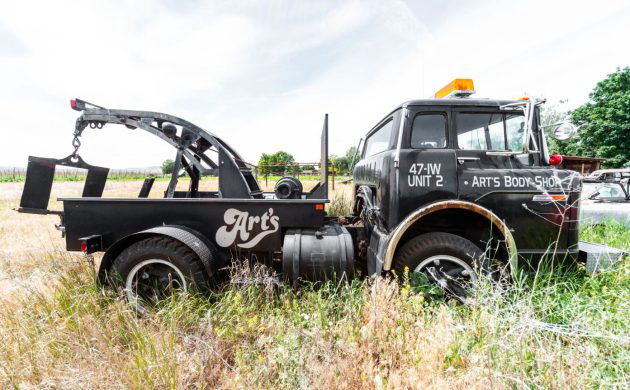
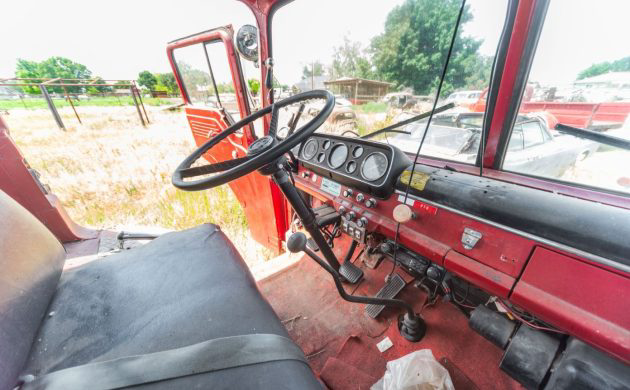
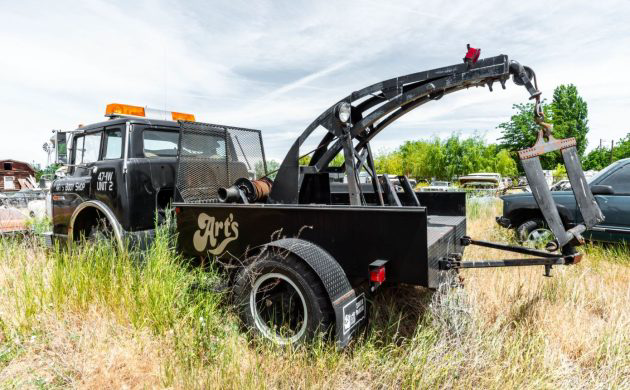
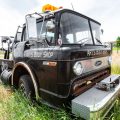
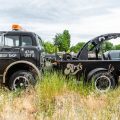
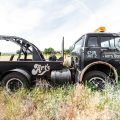
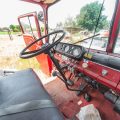
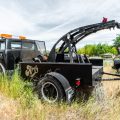
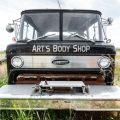
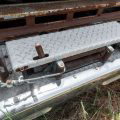
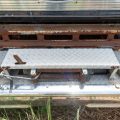

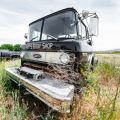
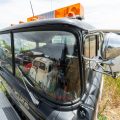
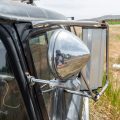
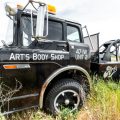
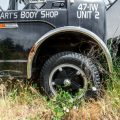
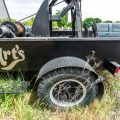
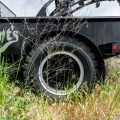

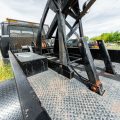
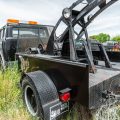
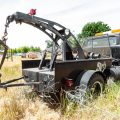
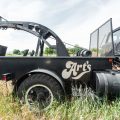
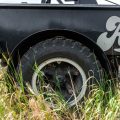
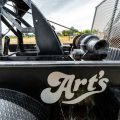
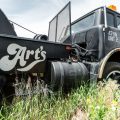
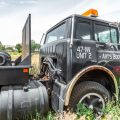
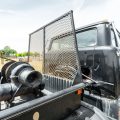
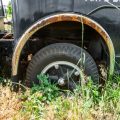
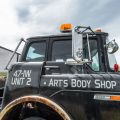
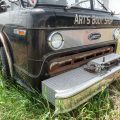
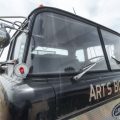
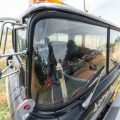
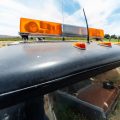


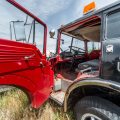
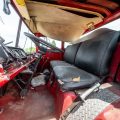
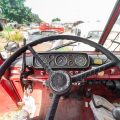
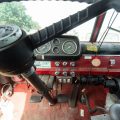
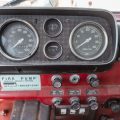
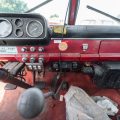
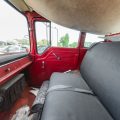
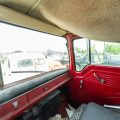
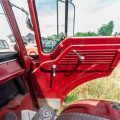
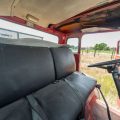
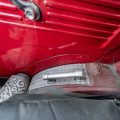
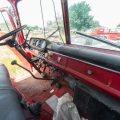
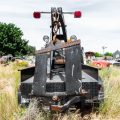



I knew the Ford C-Series had a very long production run, but I had forgotten just how long. Per Wikipedia: 1957-1990. Amazing.
I can’t comment on its future viability, but with the stylized “Art’s” logo, it does have an old-school-cool vibe.
Hi Bob, I read it was made in Louisville, that was devastated when they stopped making HD trucks, in ’98, I think. The last ones were the L series, and replaced by the dismal Sterling. I think production switched to big Ford pickups and cargo vans, but they lost a lot of jobs around that time. I’m sure generations of families worked on the C series Ford.
Hi Jose, Love the truck. Could you possibly email me a clear, close up photo of these mudflaps?
Manual transmission.
Hooray! A heavy duty truck,,okay, not a 359 Pete, but us truck nuts will take it. The C series Ford has got to be the most standard issue city truck most of us remember. They seemed to replace the White 3000s. They came in a wide range of uses, the cabover design and short turning radius made them ideal for just about any purpose you can think of.
Sorry to say, Arts tow truck is horribly out of date, unless you plan to pickup ’58 Caddys, or any car with a real bumper, this type of lift won’t work. Modern tow trucks are either rolloff or wheel lift. Also the drive line is under rated for a tow truck. It needs a 2 speed rear axle at the least, has tube tires, probably juice brakes, all fine for a fire truck, but not as a tow truck. Still, it didn’t rack up many miles as a fire truck, and not many as a tow truck either. I bet it could be repurposed into something, a dump truck, or pull a 5th wheel camper, but it’s days are done as a recovery vehicle. One of Fords best trucks, right here.
I ran a business that repaired emergency vehicles. I turned over an apparatus to the crew after the repairs were completed and watched as they drove off. Apparently, the last person in our shop who was under the cab neglected to lock down the cab. The crew called me shortly afterwards and informed me that upon coming to the first stop sign, the driver applied the brakes and the cab flipped forward, giving them a close up view of the pavement through the windshield. Fortunately, we all had a good laugh about it.
Ha! I’m sure there are plenty of stories like that. I’ve never actually seen that happen, but heard of it. The other thing with cabovers, upon tilting the cab, all the junk from the sleeper ended up on the dash. Then letting the cab down, more than one shift lever took a hit. I’ve driven several cabovers in my driving career, I hated everyone of them, but drove what the boss told me to.
That’s cool.
Barn Find I’ve been trying to open an account to become a member. It’s not that I think membership is anything special l just want to show my support for the good work you guys do. Every time I try to join your site ask for a password and it won’t let me create a new password and I don’t want to use an old password because they’ve all been compromised and I’m sure they are all on the dark web. So l need a suggestion as to this problem. Your writers do a good job and I just want to show my support.
Sorry Howard, you got a little misinfo mixed in there. The Louisville Truck Plant stands less than 2 miles from where I sit. The big heavy duty Fords roll out of there every day to do every heavy duty job in America. FORD has 2 plants in Louisville but this one builds the physical and spiritual successors to the mighty C Series.
Thanks, I can only go by what I see online. It’s nice to actually hear from a “Slugger” on these topics. I can’t imagine the city has the same zing as the C and L series days. A certain 5 letter “V” word took care of that.Today Louisville is the capital for ground delivery companies. Everything goes through Louisville. Travelling through especially at night, airplanes carrying freight can be seen waiting to land for miles.
These were a popular truck back in the day. The cabs were used by other makes as well. Our shop’s first hauling truck was a MACK with this cab. It left a lot to be desired, like wind noise and a heater that was about as useful as a milk bucket under a bull. It was so grossly overloaded that it was amazing that it pulled through. When we got the GM franchise, the boss sold that old MACK and we used a GMC 6500 with a 427 to pull the trailer. We finally convinced management to get a proper full length trailer to handle what we hauled. We eventually got a GMC J9500 to do the hauling and everyone was happy. I understand that the MACK was sold to a farmer down towards Shelby. I’m sure I caught a glimpse of it when I was dodging the scales…
I read, the C series cab was used in Canada under the Mercury name, Mack N model, of course, but also FWD, Yankee-Walter airport crash trucks, and Thibault fire trucks used them too. Not mentioned is the clumsy shift levers, inherent to all cabovers. These , I believe, had a junction box under the dash, for tilting, and long tube that actuated the shift forks, with poor accuracy, I might add. Most fire engines went with the gas V8s, but the C series trucks I saw all had that boat anchor, 3208 Cat. While a poor motor to pull any weight,, it did city work with ease, and used less fuel and fewer breakdowns. C series, single axle tractors were the staple of every city freight hauler known to man. Fact is, I don’t ever recall seeing a twin screw C series Ford.
Well, daggone it! My giveadamn (thumbs-up button) is still busted. You all will just have to pretend that I gave you a thumbs-up.
Yes, I worked on a lot of C-series Fords with 3208 Cats (and the aforementioned Mack N with the 160 hp 672 6 cyl. I also worked on a lot of Super Duty Ford versions with the 477 and 534 V-8s. I remember the manual said that you needed to set the tappets with the engine hot, and running. I tried that but needed a 3rd and 4th arm so I decided to set the tappets with the engine hot and shut down. They still clattered.
I remember the fire trucks with those C-cabs and now that you mention it, I don’t recall seeing one of those with a twin screw either. Lots of International Loadstar and CO-series with the tandem axles. And some of the earlier models had that column-shift 5-speed. I really wanted to have a private chat in a back alley with one of those engineers…
I had one of these on my want list back when I was buying trucks. The fire truck bumper looks out of place on a wrecker to me. The wrecker boom doesn’t look like it’s up to anything bigger than a car. The wrecker body looks like it’s for a pickup.
Why would a tow truck that pulls cars need a 2 speed rear end?